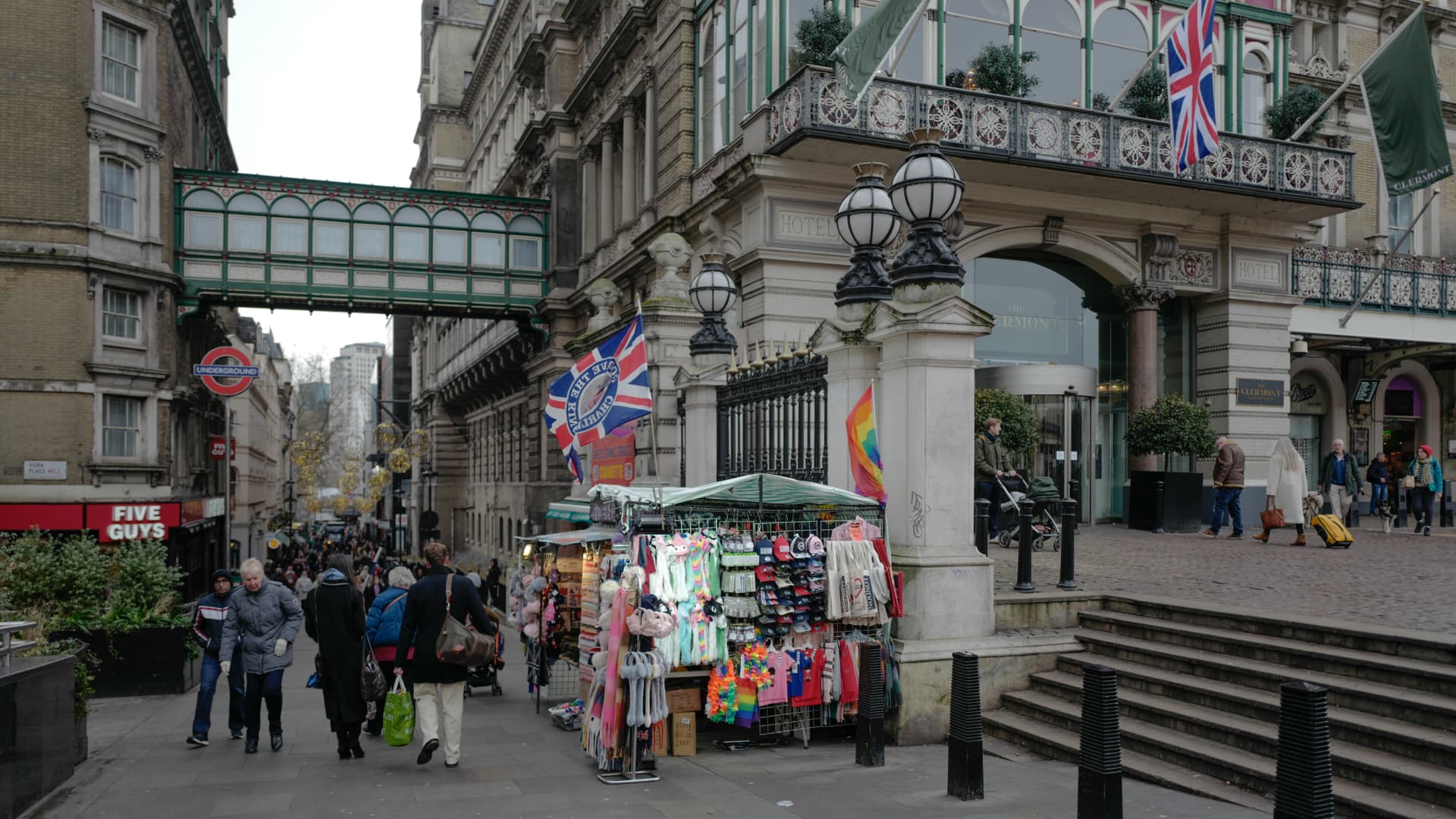LONDON — Stronger-than-expected January retail sales provided a glimmer of light for the struggling British economy on Friday — and suggest that the country’s recession will be short-lived, according to some economists.
Sales rebounded by 3.4% from December, according to the Office for National Statistics, the strongest monthly gain since April 2021. Economists polled by Reuters had expected a more modest growth of 1.5%.
Sales volumes increased in all areas except closing, as food shops saw the biggest boost. Consumers “spent more for less in January,” the ONS said, with the total they paid rising by 3.9%.
The latest figures follow the news of Thursday that the British economy entered a technical recession in the final quarter of 2023. Gross domestic product declined by 0.3%, following a 0.1% contraction in the third quarter.
Sales over the key holiday trading period were far weaker than expected, with December seeing the biggest monthly fal since January 2021.
British retail sales meanwhile remain 1.3% below their pre-pandemic level from February 2020, according to the ONS.
The “strong pick up in sales suggests the worst is now behind the retail sector and falling inflation and rising wages in 2024 will provide a strong platform for recovery,” Joe Maher, assistant economist at Capital Economics, said in a note.
The hike also points to a fading drag on consumer spending from higher interest rates, as well as the economy exiting recession territory, Maher said —but there is “still a long way back for retailers” to their pre-pandemic highs.
Kris Hamer, director of insight at the British Retail Consortium, said two months of higher sales volumes over the last three months were “promising” after 19 months of decline.
“Nonetheless, shoppers remained cautious as they entered the third year of the high cost of living,” Hamer said, adding that a rise in business rates and new border control costs would weigh on the retail sector.
Despite the poor growth figures, the retail report — along with steady inflation figures and a healthy December jobs report — ended the week on a “half positive note,” said Kallum Pickering, senior economist at Berenberg.
Anecdotal evidence from retailers suggests consumers held back in December, but came out in force to benefit from January sales, he said.
“However, we need to be cautious. Monthly data are volatile. The January jump merely offsets the big 3.3% [month-on-month drop in December – and hence returns real sales to the November level,” Pickering said in a note.
The fresh figures are consistent with “haphazard stagnation” in the retail sector and with broader economic activity in the last 18 months, though Berenberg economists expect retail momentum to pick up over the coming months due to higher real wages and consumer confidence, he added.
